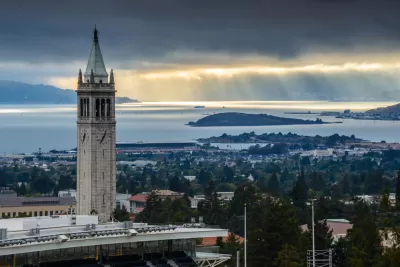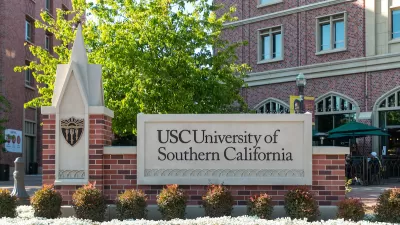Land grant universities are, by design, tasked with benefitting the communities in which they are located. The recent track record on that mission is mixed, according to a recent book on the subject.

Stephen M. Gavazzi, co-author of the book Land-Grant Universities for the Future: Higher Education for the Public Good, writes an article to describe the strengths, weaknesses, opportunities, and threats of land grant universities in the current day.
Land grant universities are the result of a law signed in 1862 by President Abraham Lincoln, who "granted federal land to states to support the development of America's first public universities."
"Land-grant institutions that were created include such prominent ones as Cornell, Maryland, Michigan State, MIT, Ohio State, Penn State, Rutgers, Texas A&M, West Virginia University, Wisconsin and the University of California -- four dozen of America's largest and best public universities. Add to this historically black colleges and universities and tribal colleges, and the total comes to more than 110 institutions."
According to Gavazzi, land grant universities have a mixed record in recent years with regard with their specific aim to serve their communities. Some universities are guilty of a "mission drift," to use Gavazzi's term, away from community-serving work, which has resulted in less public support for higher education.
There are other newer initiatives that "seem to be bringing communities back into the viewfinders of many land-grant and other public universities."
"One sterling example is the Innovation and Economic Prosperity Universities Program, hosted by the Association of Public and Land-grant Universities. This initiative assists universities in documenting and amplifying their ability to support economic and community development through meaningful, ongoing campus-community partnerships," according to Gavazzi.
FULL STORY: How Land-Grant Universities Can Enrich the Future of Communities

Maui's Vacation Rental Debate Turns Ugly
Verbal attacks, misinformation campaigns and fistfights plague a high-stakes debate to convert thousands of vacation rentals into long-term housing.

Planetizen Federal Action Tracker
A weekly monitor of how Trump’s orders and actions are impacting planners and planning in America.

San Francisco Suspends Traffic Calming Amidst Record Deaths
Citing “a challenging fiscal landscape,” the city will cease the program on the heels of 42 traffic deaths, including 24 pedestrians.

Defunct Pittsburgh Power Plant to Become Residential Tower
A decommissioned steam heat plant will be redeveloped into almost 100 affordable housing units.

Trump Prompts Restructuring of Transportation Research Board in “Unprecedented Overreach”
The TRB has eliminated more than half of its committees including those focused on climate, equity, and cities.

Amtrak Rolls Out New Orleans to Alabama “Mardi Gras” Train
The new service will operate morning and evening departures between Mobile and New Orleans.
Urban Design for Planners 1: Software Tools
This six-course series explores essential urban design concepts using open source software and equips planners with the tools they need to participate fully in the urban design process.
Planning for Universal Design
Learn the tools for implementing Universal Design in planning regulations.
Heyer Gruel & Associates PA
JM Goldson LLC
Custer County Colorado
City of Camden Redevelopment Agency
City of Astoria
Transportation Research & Education Center (TREC) at Portland State University
Jefferson Parish Government
Camden Redevelopment Agency
City of Claremont





























